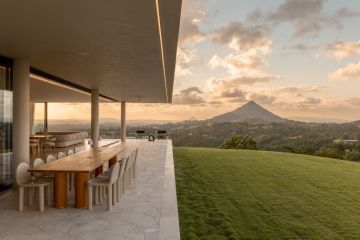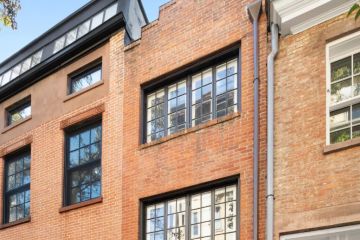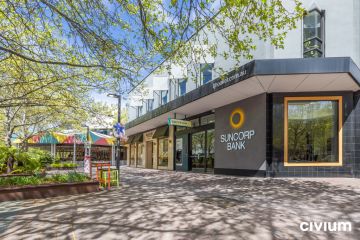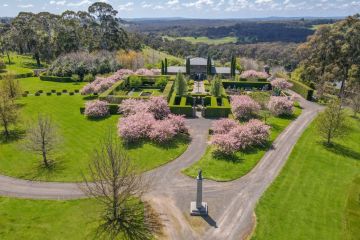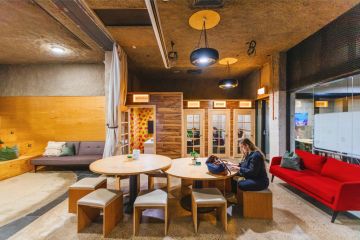Escape to Clunes, Victoria: A town loved by locals, bibliophiles and moviemakers
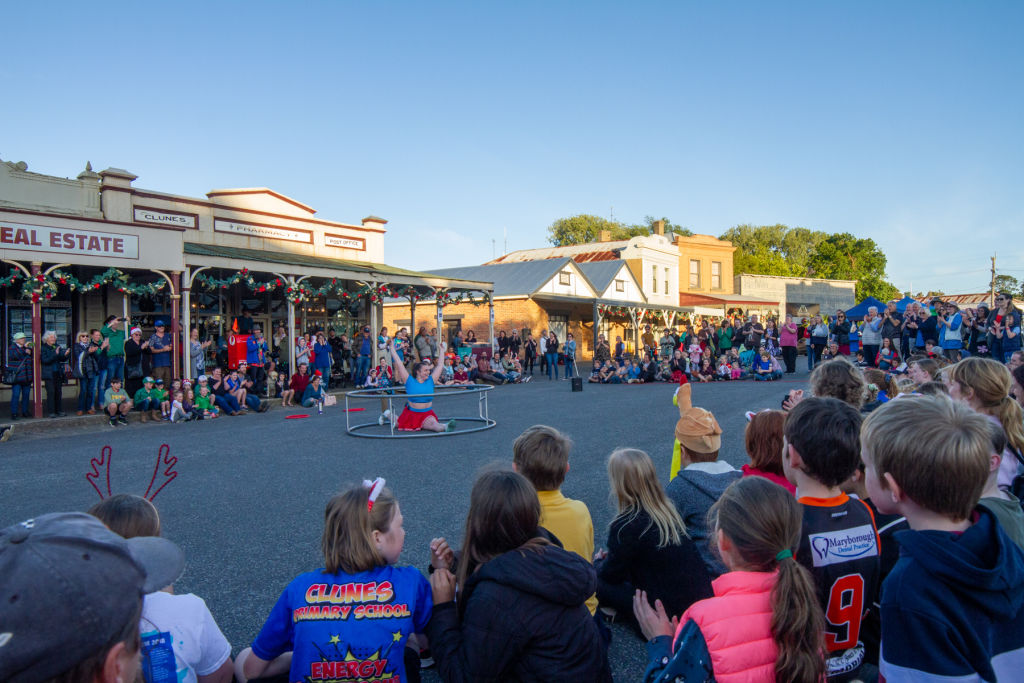
Walk down the main street of Clunes, and you’ll instantly be transported to the Australia of old.
In fact, you may feel a sense of deja vu looking at the original shopfronts from the gold rush era that line the main street of this small western Victoria town.
Clunes has been the backdrop for many famous Australian films including Mad Max, Ned Kelly and soon, a remake of Picnic at Hanging Rock.
The town’s collection of 19th-century buildings is considered to be among the best in Australia and naturally lend themselves to the camera.
But don’t be fooled, Clunes is no bygone relic. Each year it hosts some of the country’s most in-demand authors, poets and playwrights for the popular Booktown festival in May when almost 20,000 booklovers converge on the town.
Unlike many small towns, Clunes is home to a thriving community and a burgeoning population thanks to a swelling number of tree-changers.
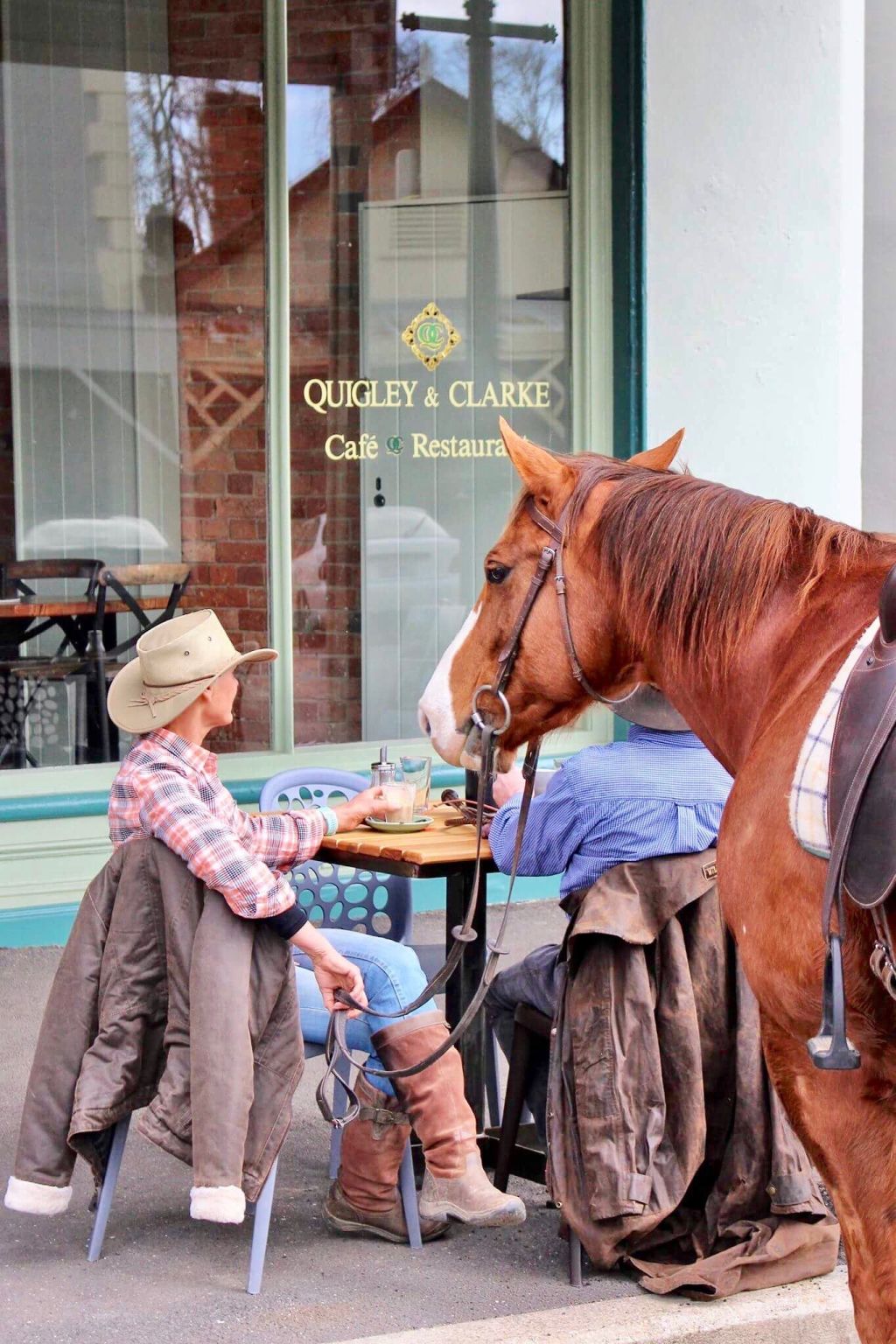
Population: 1728, as of the 2016 Census
Who lives here?
Clunes is an hour-and-a-half drive from Melbourne, so it’s an easy day-trip destination. The large regional hub of Ballarat lies half an hour south-east and the pretty town of Daylesford is a half-hour drive east.
Lifelong locals John and Jen Hind have owned the National Hotel for the past four years and say they know “probably 95 per cent” of everyone who walks through the door.
“Clunes is a surprisingly busy little place, but it’s quiet, which we enjoy,” John said.
“A lot of small towns around us, their populations are diminishing quite a lot, and a lot of small pubs are closing, whereas we’re probably the opposite of that.
“The town is going forward with a lot of new people coming into town, a lot of new people with different attributes, a lot of musicians and artists. We have a couple of art galleries in town now, which is amazing. There’s things always going on, there’s always an event.”
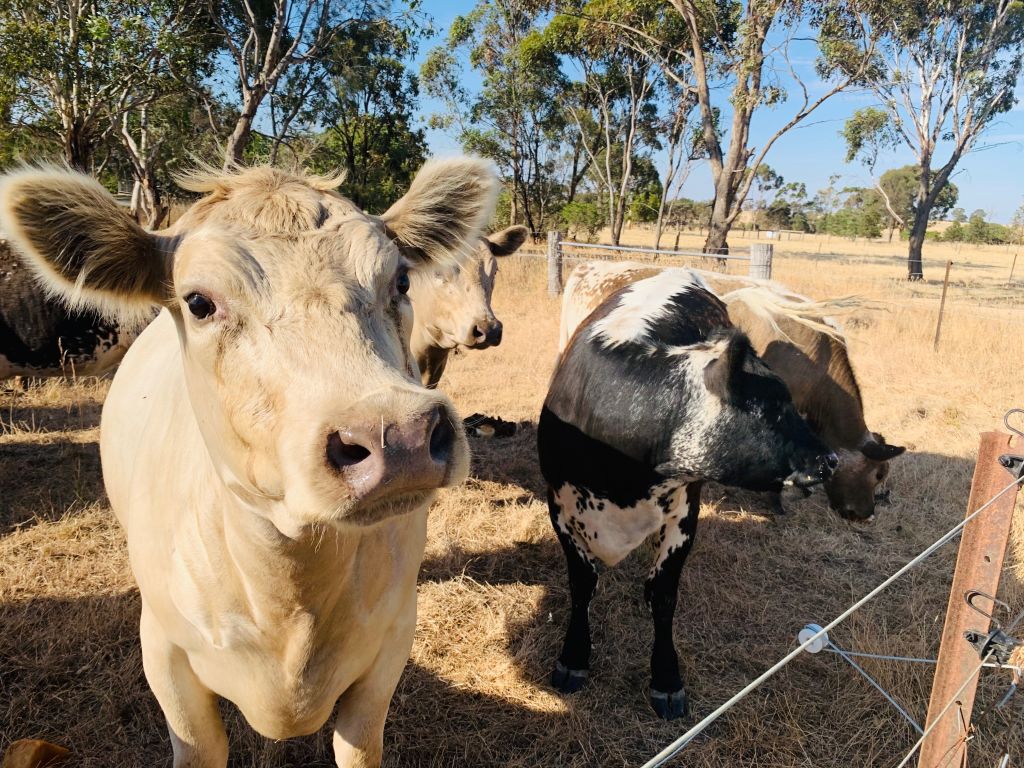
No surprises that the National’s busiest time is Friday night when regulars gather to take advantage of the $3 beers and $5 wines on offer during happy hour. Friday night is also raffle night when goods donated from fellow businesses such as meat trays and Tattslotto tickets are sold to support local sporting clubs or any locals in need.
The pub serves traditional old-fashioned fare: homemade rissoles, steak sandwiches and, of course, parmas.
“We’re a country pub, so it’s cold beers and large meals, so you’ve got a full belly when you leave,” said John.
Pub grub aside, he said the best part of living in Clunes is the family-friendly community.
“It’s a wonderful place for kids because they can probably roam a lot freer with the main street what it is, and people look out for other people’s kids,” John explained. “It’s a safe little community.”
What happens here?
Clunes hosts many events including regular farmers markets, makers markets, the Ceramic Award in September, the Clunes Agricultural Show in November and the Christmas in Clunes parade. But the main event is Clunes Booktown, held every May. Last year it attracted approximately 18,000 people with a total economic benefit of $3.75 million.
Now in its fourteenth year, Tess Brady, one of four founding members of the book festival, said Booktown had done wonders for Clunes.
“It was pretty much an empty town, and we were facing development that didn’t appeal to most of us,” she said.
“We liked the village feel so we knew we needed to work on a development of some kind that would be sympathetic to the town. Books, of course, can encompass everything from history to gardening, from sport to fiction. We thought this could fit really well and snugly in the town and indeed it does.”
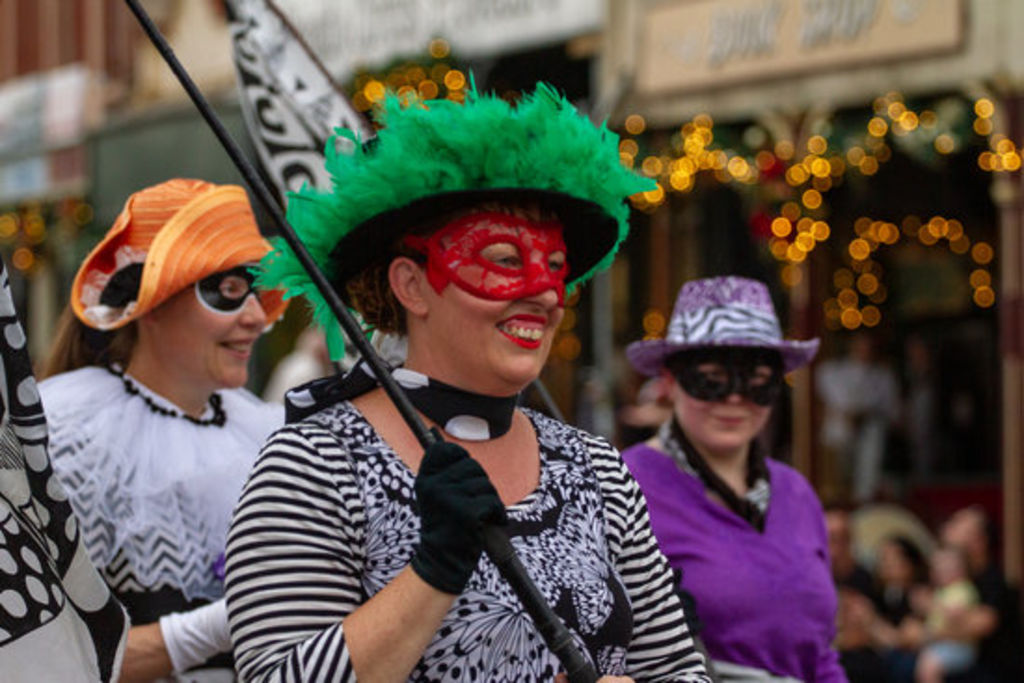
The gradual growth in tourism has put Clunes on the map. It’s one of only 15 internationally recognised Booktowns in the world.
It’s also had a hand in welcome changes including a $7 million renovation of the town’s tired train station and the return of a passenger rail service.
Clunes has also welcomed new businesses to the main street and steady growth in population.
“With that increase in population has come all the subsequent flow-ons – the shops are almost full, and we have cafes!” Tess said.
“You couldn’t get a coffee when I first got here, or there was one, but it only served a couple of times a night.”
What’s life like?
Considering its size, Clunes has a comparatively broad range of community groups. A telling indicator of its inclusive nature is the 27 per cent of people who told the 2016 Census they had volunteered in the past 12 months. This compares to 19 per cent nationally.
“I would never have thought of that as being a measuring stick or an indicator of what your community is going to be like, but I think the amount of volunteerism is an indication of how engaged and welcoming people are,” said Steven Hunter, who owns the popular Quigley and Clarke cafe with Donáll Quigley.
“People are passionate, people are supportive, and there’s a lot to be said for that.”
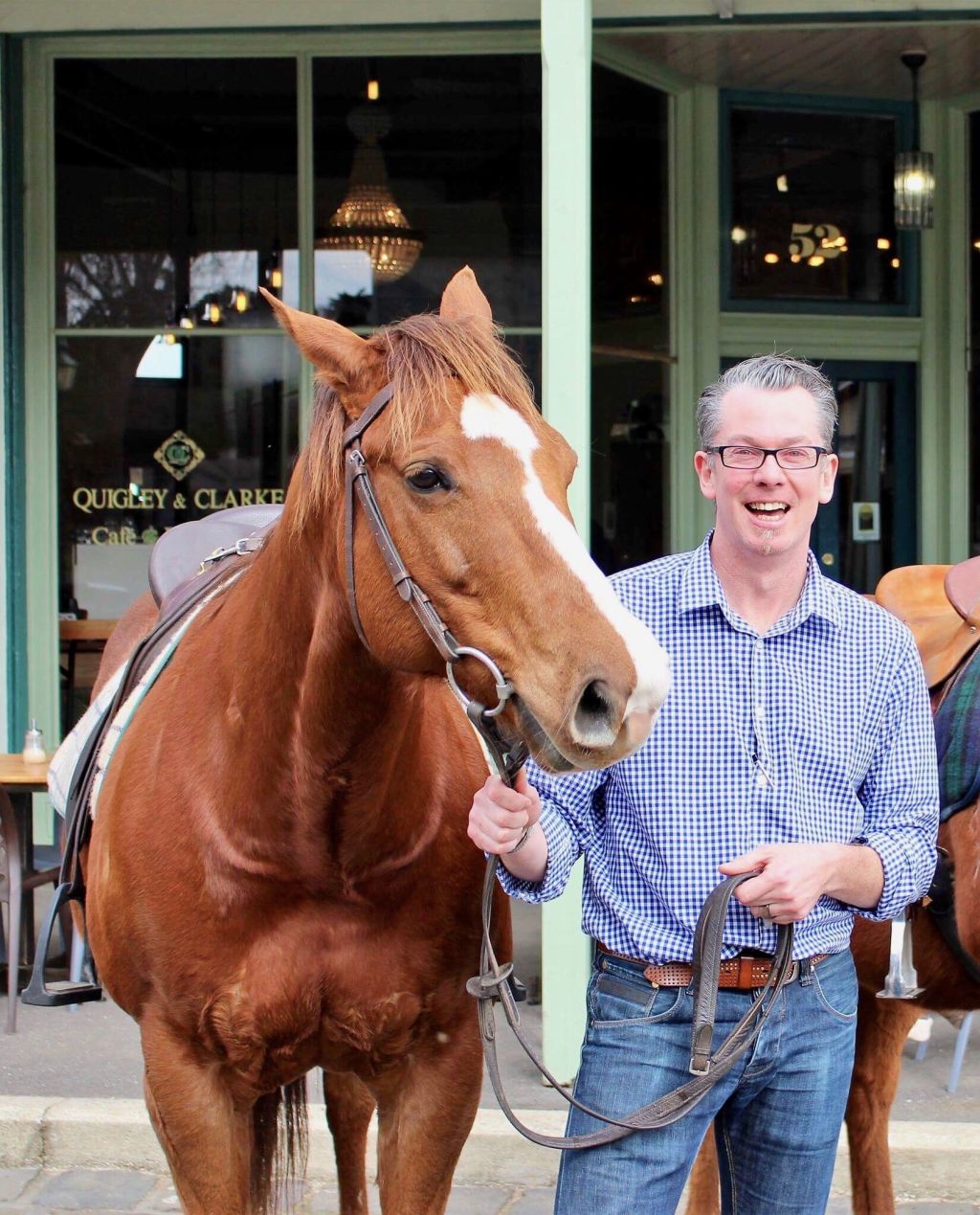
Hunter and Clarke owned land at Clunes for 14 years before they decided to move there from their inner-Melbourne address.
The connections they made were strong and made the move well worth it, said Steven. “I travel a lot for work, and when I used to come home I was coming back to a neighbourhood in the inner city of Melbourne and not knowing who my neighbours were,” he said.
“Whereas in Clunes, I walk down the street and I pretty much know everyone in town, and we stop and chat. It’s not a neighbourhood, it’s a community.”
What jobs are here?
The nearby Ballarat Base Hospital means a lot of Clunes residents work in the health sector, and many also work in education thanks to the Clunes campus of Wesley College and the town’s primary school.
Clunes has no lack of bush beauty, so the town lends itself to the growing number of artists, said Lana de Kort, manager of the Clunes Neighbourhood House.
“The last Census showed that statistically, the Clunes lifestyle seems to have attracted people who like to be able to work from home – artists, creatives, small business operators,” she said.
“I think that is part of the reason why our town is so diverse and proactive. We’ve retained our heritage and ties with the land, but incorporated new ideas or energies.”
Why should you move here?
Clunes has the trifecta every small town wishes for – regular train services to the nearest capital city, a vibrant calendar and a thriving economy.
The surrounding natural beauty – local gorges and golden canola fields – is a bonus. So too is the town’s approach to preserving its unique heritage (residents even lobbied the local council so white lines wouldn’t be painted down the centre of the main street).
But for de Kort, who moved with her family to Clunes from Queensland, it’s largely the sense of community.
“There is something welcoming about Clunes; partly it’s the people,” she explained.
“Ready smiles and hellos that make you feel acknowledged, as well as a street and landscape that encourage you to get out and walk around.
“Partly it’s that grounded feeling that comes from being steeped in history and having a community with such strong ties to the land.
“Whatever the combination is, the result is that you feel welcome and a part of the life of the town.”
We recommend
We thought you might like
States
Capital Cities
Capital Cities - Rentals
Popular Areas
Allhomes
More
